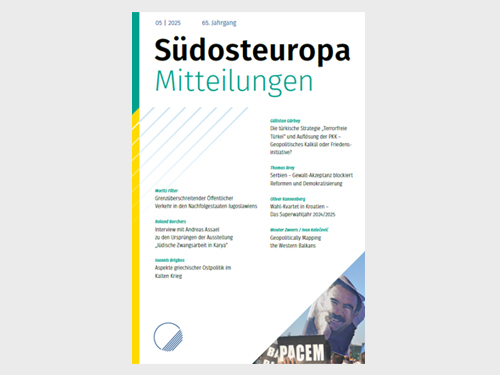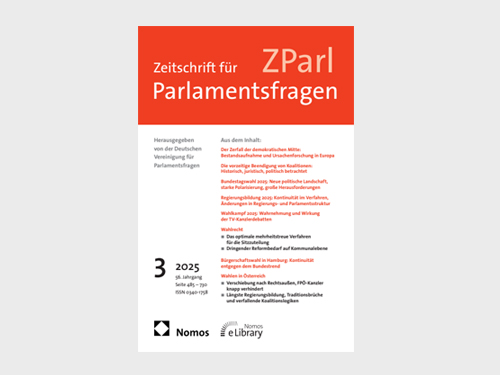Through elections, voters determine who represents them in parliament. The rules according to which elections are held, how votes are turned into mandates and who organises their implementation are therefore essential for the quality of democratic representation. We are supporting the reform process surrounding the Bundestag electoral law with our expertise and are also conducting research into questions of electoral organisation and the associated trust in elections.
For questions about elections and electoral law, please contact Daniel Hellmann at hellmann@iparl.de.

The citizens of Croatia were called to four different elections within 13 months. Oliver Kannenberg writes about the astonishing stability of the party landscape with the simultaneous dominance of two "strong men" in his article for Südosteuropa Mitteilungen

Almost 40 per cent of eligible voters took part in the referendum on Munich's Olympic bid - a remarkable turnout rate for a referendum, says Daniel Hellmann in an interview with BR24. One of the reasons for this is that the city sent out postal voting documents directly alongside the election notification.

To a certain extent, a mandate is like a pregnancy - you don't really know what you're getting into beforehand. It is all the more difficult when you have to manage both at the same time, because MPs are not traditional employees. There is no parental leave, no regulated working hours, usually long official channels and many other smaller and larger problems. Following the recent appearance of Hannah Steinmüller (MP, Greens) and her son at the German Bundestag lectern for the first time and the announcement by Julia Klöckner as Bundestag President of parent-friendly reforms to parliamentary work, there has been some movement on the topic.

The coalition negotiations after the Austrian National Council elections in 2024 developed into the longest government formation of the Second Republic and led to an oversized three-party coalition of the ÖVP, SPÖ and NEOS for the first time since 1949. Oliver Kannenberg traces the three coalition negotiations chronologically, paying particular attention to the informal practices, party-political blockades and constitutional leeway.

What will happen after the early general election and which changes to the party system are to be expected? Danny Schindler spoke about these questions with the morning programme of SWR Kultur.

The Bundestag elections on 23 February will be observed by an OSCE/ODIHR team of experts. In this context, discussions will also be held with experts from academia and civil society. Danny Schindler and Daniel Hellmann gave their assessments of the electoral reform, the scrutiny system and the general organisation of the election and discussed possible suggestions for improvement with the OSCE/ODIHR team of experts.
Sign up to receive updates, promotions, and sneak peaks of upcoming products. Plus 20% off your next order.